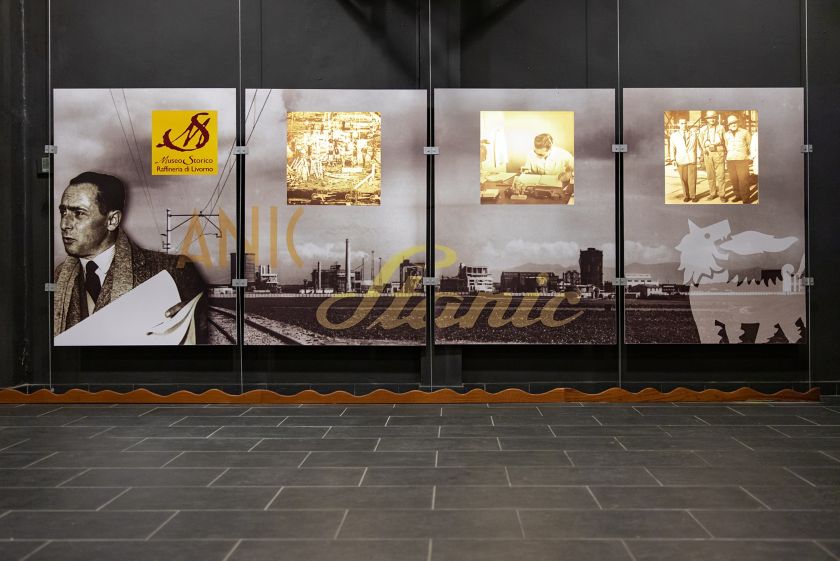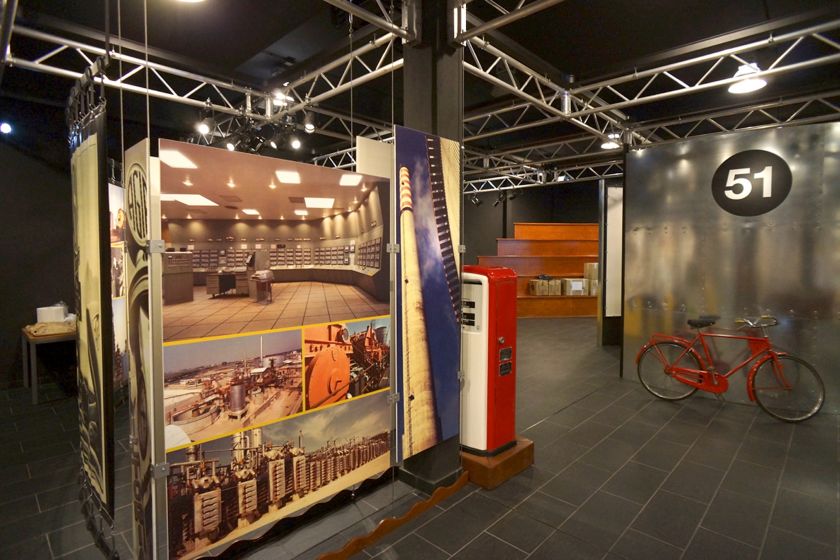EIB financing in support of Eni’s project
The European Investment Bank and Eni have signed a finance contract to support the conversion of Eni's Livorno refinery into a biorefinery.

Or , our new artificial intelligence tool.

The Livorno refinery is of strategic importance to the Italian economic system and we are planning to convert it into a bio-refinery by 2026, following the successful models implemented in Venice in 2014 and Gela in 2019. With the Oilà project, we collect used cooking oils from employees, converting highly polluting used vegetable oil into a new energy source.
The European Investment Bank and Eni have signed a finance contract to support the conversion of Eni's Livorno refinery into a biorefinery.
This is Eni’s third biorefinery in Italy, following those in Venice and Gela. The project is part of Enilive’s strategy to exceed 5 million tonnes of biorefining capacity by 2030.
Read the press release
Eni and the BEI leaders signed the agreement during their meeting on the Eni headquarters in San Donato Milanese

We operate a refining plant in the area and, in line with our decarbonisation goals, we plan to transform the site into new biorefinery facilities.

Through the Oilà project, we develop circular economy initiatives to transform polluting waste into new energy resources.
Region: Toscany
Activity start date: 1954 - present
The Livorno refinery has a long industrial tradition. Eni has managing it since 1954, but the first activities began in 1938. Over the decades, its facilities have been completely upgraded and the refinery has been a key facility for refining in Italy for a long time, thanks in part to two oil pipelines connecting it with the port of Livorno and the Florence depot, the presence of a large tank part and numerous platforms for loading road and rail tankers.
The conversion of the industrial site into a biorefinery, a strategic decision in our decarbonization pathway, involves halting crude oil imports and subsequently shutting down the lubricant production lines and the topping plant. We plan to ensure the distribution of fuels throughout the area by importing finished and semi-finished products.

The historical museum of Livorno refinery



The refinery conversion project, as we await the approval of official authorisations, includes the construction of three new facilities for the production of hydrogenated biofuels:
The plants will process various biogenic feedstocks, mainly vegetable waste and residue, to produce HVO diesel, HVO naphtha and bio-LPG.
The creation of the biorefinery will ensure a productive and employment future for Livorno.
balanced refining capacity
future Ecofining™ plant production capacity
working at the refinery
for the biorefining already in place
To recover used cooking oils collected by its employees, the refinery also launched the Oilà project, an initiative inspired by the circular economy and implemented at other Eni sites. It turns highly polluting waste such as used vegetable oil into a useful resource, contributing to sustainability and reducing the environmental impact. These types of initiatives not only promote material reuse but also help raise awareness among employees and local communities of the importance of recycling and responsible waste management.
the year when the project began in Livorno

If you want to change topic, clear the chat and make a new query to receive more relevant results.
This will delete the question history.
If you want to change topic, clear the chat and make a new query to receive more relevant results. This will delete the question history.
Here you can find the full list of your queries.
The answers are generated by artificial intelligence, therefore they may contain inaccuracies. Please read the terms and conditions of use.

EnergIA is an innovative tool based on artificial intelligence capabilities, which can help you navigate the contents of eni.com, quickly finding answers to your questions. EnergIA can also perform a search on a specific topic, providing the most up-to-date data available, or it can invite you to delve deeper into a topic of your interest by suggesting links and specific readings. Start now!
EnergIA is an innovative tool based on artificial intelligence capabilities, which can help you navigate the contents of eni.com, quickly finding answers to your questions. Start now!
EnergIA (ener'dʒia) is a system based on Generative Artificial Intelligence.
Thanks to this technology, we can respond to your requests by querying the most relevant content and documents available on eni.com. (Note: financial documents from the last 12 months and press releases from the last 2 years are considered.)
Through EnergIA, you can delve into topics of interest and have a real-time window into the world of Eni.
If you wish to search for a specific document, press release or news, use the traditional search engine via the magnifying glass icon.
Like all systems that leverage Generative Artificial Intelligence, EnergIA may generate inaccurate or outdated responses. Always consult the sources that EnergIA proposes as the origin of the generated information.
If the system fails to find an exact match for the requested content, it still tends to provide a response.
If you find any inaccuracies in the provided response, please send us your feedback at the bottom of the page: it will be very helpful for us to improve.
Remember that the content generated by the system does not represent Eni’s official position. We therefore invite stakeholders to refer to their designated contacts for official statements: Press Office for journalists, Investor Relations for analysts and investors, Company Secretariat for shareholders etc..
EnergIA can understand questions posed in almost all languages, but we prefer to provide you with a response in English or Italian, the two languages available on eni.com. If you ask a question in Italian, the content on the site in Italian will be consulted. If you ask it in English or any other language, the content in English will be consulted. (Note: the language Eni uses for financial documents/content is predominantly English.)
If questions are formulated that violate the set security criteria, the system will not proceed with processing the response. Please remember not to send personal data.
By using this service, the users acknowledge that they have read and accepted the terms and conditions of use.
Search
EnergIA (ener'dʒia) is a system based on Generative Artificial Intelligence.
Thanks to this technology, we can respond to your requests by querying the most relevant content and documents available on eni.com. (Note: financial documents from the last 12 months and press releases from the last 2 years are considered.)
Through EnergIA, you can delve into topics of interest and have a real-time window into the world of Eni.
If you wish to search for a specific document, press release or news, use the traditional search engine via the magnifying glass icon.
Like all systems that leverage Generative Artificial Intelligence, EnergIA may generate inaccurate or outdated responses. Always consult the sources that EnergIA proposes as the origin of the generated information.
If the system fails to find an exact match for the requested content, it still tends to provide a response.
If you find any inaccuracies in the provided response, please send us your feedback at the bottom of the page: it will be very helpful for us to improve.
Remember that the content generated by the system does not represent Eni’s official position. We therefore invite stakeholders to refer to their designated contacts for official statements: Press Office for journalists, Investor Relations for analysts and investors, Company Secretariat for shareholders etc..
EnergIA can understand questions posed in almost all languages, but we prefer to provide you with a response in English or Italian, the two languages available on eni.com. If you ask a question in Italian, the content on the site in Italian will be consulted. If you ask it in English or any other language, the content in English will be consulted. (Note: the language Eni uses for financial documents/content is predominantly English.)
If questions are formulated that violate the set security criteria, the system will not proceed with processing the response. Please remember not to send personal data.
By using this service, the users acknowledge that they have read and accepted the terms and conditions of use.
A new window into Eni’s world, at your disposal. EnergIA is an innovative tool based on artificial intelligence capabilities, which can help you navigate the contents of eni.com, quickly finding answers to your questions.